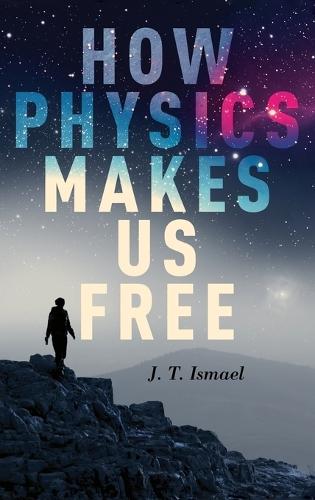Full Product Details
Author: J. T. Ismael (Professor of Philosophy, Professor of Philosophy, University of Arizona) ,
Jenann Ismael
Publisher: Oxford University Press Inc
Imprint: Oxford University Press Inc
Dimensions:
Width: 23.60cm
, Height: 2.80cm
, Length: 16.30cm
Weight: 0.544kg
ISBN: 9780190269449
ISBN 10: 0190269448
Pages: 288
Publication Date: 24 March 2016
Audience:
Professional and scholarly
,
Professional & Vocational
Format: Hardback
Publisher's Status: Active
Availability: To order

Stock availability from the supplier is unknown. We will order it for you and ship this item to you once it is received by us.
Reviews
Jenann Ismael's book is a strikingly original monograph that somehow manages to be perfectly relevant and highly engaging to both the intelligent lay reader and the professional philosopher. It shows how well done philosophy of science can be relevant for the public at large, even when treating questions that have, of late, suffered from the ravages of analytic metaphysics. The book may be more widely read inside the academy than outside, but those on the outside who read it in full will surely come away with a better opinion of philosophy than they had at the start. Ismael's prose is beautiful, evocative, and full of helpful metaphors and analogies...It is a book that nobody who cares about how human freedom squares with modern physicalism can afford to ignore. -- Notre Dame Philosophical Reviews Online It is very well written, in a punchy style that often makes it a page-turner...we wholeheartedly recommend this delightful and richly rewarding book to anyone interested in free will and the self. -- Metascience
Jenann Ismael's book is a strikingly original monograph that somehow manages to be perfectly relevant and highly engaging to both the intelligent lay reader and the professional philosopher. It shows how well done philosophy of science can be relevant for the public at large, even when treating questions that have, of late, suffered from the ravages of analytic metaphysics. The book may be more widely read inside the academy than outside, but those on the outside who read it in full will surely come away with a better opinion of philosophy than they had at the start. Ismael's prose is beautiful, evocative, and full of helpful metaphors and analogies ... It is a book that nobody who cares about how human freedom squares with modern physicalism can afford to ignore. Carl Hoefer, Notre Dame Philosophical Reviews Online
"""Jenann Ismael's book is a strikingly original monograph that somehow manages to be perfectly relevant and highly engaging to both the intelligent lay reader and the professional philosopher. It shows how well done philosophy of science can be relevant for the public at large, even when treating questions that have, of late, suffered from the ravages of analytic metaphysics. The book may be more widely read inside the academy than outside, but those on the outside who read it in full will surely come away with a better opinion of philosophy than they had at the start. Ismael's prose is beautiful, evocative, and full of helpful metaphors and analogies...It is a book that nobody who cares about how human freedom squares with modern physicalism can afford to ignore."" -- Notre Dame Philosophical Reviews Online ""It is very well written, in a punchy style that often makes it a page-turner...we wholeheartedly recommend this delightful and richly rewarding book to anyone interested in free will and the self."" -- Metascience ""[a] very welcome contribution to this literature."" - John Maier, Australasian Journal of Philosophy"
Author Information
J.T. Ismael is Professor of Philosophy at the University of Arizona. She is the author of The Situated Self (OUP, 2007) and Essays on Symmetry (2001).




